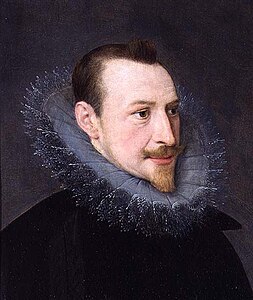Analysis of Sonnet XLV
Edmund Spenser 1552 (London) – 1599 (London)
LEaue lady, in your glasse of christall clene,
Your goodly selfe for euermore to vew:
and in my selfe, my inward selfe I meane,
most liuely lyke behold your semblant trew.
Within my hart, though hardly it can shew,
thing so diuine to vew of earthly eye:
the fayre Idea of your celestiall hew,
and euery part remaines immortally:
And were it not that through your cruelty,
with sorrow dimmed and deformd it were:
the goodly ymage of your visnomy,
clearer then christall would therein appere.
But if your selfe in me ye playne will see,
remoue the cause by which your fayre beames darkned be.
| Scheme | ABACCDCEFGHCFF |
|---|---|
| Poetic Form | |
| Metre | 110011111 11011111 0011110111 11101111 0111110111 111111101 010101111 01111 001111110 11010110 0101111 10111011 1111011111 1011111111 |
| Closest metre | Iambic hexameter |
| Characters | 585 |
| Words | 108 |
| Sentences | 4 |
| Stanzas | 1 |
| Stanza Lengths | 14 |
| Lines Amount | 14 |
| Letters per line (avg) | 33 |
| Words per line (avg) | 8 |
| Letters per stanza (avg) | 468 |
| Words per stanza (avg) | 106 |
Font size:
Submitted on May 13, 2011
Modified on March 05, 2023
- 32 sec read
- 72 Views
Citation
Use the citation below to add this poem analysis to your bibliography:
Style:MLAChicagoAPA
"Sonnet XLV" Poetry.com. STANDS4 LLC, 2024. Web. 28 Apr. 2024. <https://www.poetry.com/poem-analysis/9260/sonnet-xlv>.


Discuss this Edmund Spenser poem analysis with the community:
Report Comment
We're doing our best to make sure our content is useful, accurate and safe.
If by any chance you spot an inappropriate comment while navigating through our website please use this form to let us know, and we'll take care of it shortly.
Attachment
You need to be logged in to favorite.
Log In